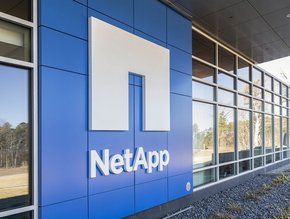CCS Insight reveals tech predictions for 2024 and beyond

CCS Insight has produced its latest set of predictions that share its expectations for the technology landscape in 2024 and beyond - from the future generative AI landscape to changes to regulations.
This year the research team has focused on personalised experiences, AI and sustainability as well as collaborative convergence and the impact of regulation. Focus areas include key technologies such as machine learning, cloud computing and extended reality as well as a deep focus on the circular economy, advances in infrastructure, the changing workplace, connected devices and virtual worlds.
Future generative AI trends, smartphone market predictions and AI ethics
Below are a selection of CCS Insight’s predictions for 2024 and beyond:
Generative AI will have a cold shower in 2024 as the reality of cost, risk and complexity replaces the hype of 2023. According to CCS Insight, the hype of 2023 has ignored several obstacles that will slow progress in the short term. The cost of deployment is a prohibitive factor for many organisations and developers. Additionally, future regulation and the social and commercial risks of deploying generative AI in certain scenarios result in a period of evaluation prior to roll-out.
EU legislation is delayed and redrawn multiple times owing to the speed of AI advancement. The EU is in the process of regulating AI with the AI Act. However, the speed at which AI is advancing makes the construction of a robust and workable regulatory framework extremely difficult. There are differences of opinion between the US, EU and market participants, with Europe taking a far more structured and robust approach to regulation. Legislation is not finalised until late 2024, leaving the industry to take the initial steps at self-regulation.
HTC exits the virtual reality market by 2026. HTC has struggled to compete with rivals largely because of its refusal to engage in aggressive pricing strategies. Although it is buoyed slightly by growth in the category in the coming years, by 2026 it makes the decision to shut down its work in virtual reality and sell its intellectual property to other players.
By 2030, AI enables 50% of companies in a European country to trial a four-day working week. As workplace tools are enhanced by generative AI in a bid to boost productivity, firms use this technology in a more considered way to offer many staff to spend their time more effectively. The widespread adoption of AI leads to employers in one nation championing a shorter working week.
Self-healing displays will appear on smartphones and other consumer electronics by 2028. The first self-healing displays emerge capable of repairing minor scratches and dents on their own. This is enabled by using a special material in the display, which when exposed to air reacts and forms a new layer of material to fill an imperfection.
By 2025, a connectivity performance rating is mandated as part of the sale of any property in a major European market. The rating includes an assessment of indoor and outdoor mobile coverage by each network operator and the current and expected status of full-fibre broadband. Its introduction comes as access to high-quality connectivity has a growing impact on property prices.
AI oversight committees will become commonplace in large organisations by 2024. Companies establish diverse oversight committees composed of AI ethics experts, legal advisors, data scientists and representatives to review applications of AI in the business, set guidelines, conduct audits and address ethical and legal concerns.
A wave of AI-generated web articles with minimal scrutiny prompts a search engine to add content health warnings to its results. The proliferation of generative AI creates a flood of AI-written spam articles. A major search engine is forced to start offering content warnings on individual search results that it believes may have been AI-generated.
******
For more insights into the world of Technology - check out the latest edition of Technology Magazine and be sure to follow us on LinkedIn & Twitter.
Other magazines that may be of interest - AI Magazine | Cyber Magazine.
Please also check out our upcoming event - Net Zero LIVE on 6 and 7 March 2024.
******
BizClik is a global provider of B2B digital media platforms that cover Executive Communities for CEOs, CFOs, CMOs, Sustainability leaders, Procurement & Supply Chain leaders, Technology & AI leaders, Cyber leaders, FinTech & InsurTech leaders as well as covering industries such as Manufacturing, Mining, Energy, EV, Construction, Healthcare and Food.
BizClik – based in London, Dubai, and New York – offers services such as content creation, advertising & sponsorship solutions, webinars & events.
- ServiceNow & Microsoft Partnership Driving Enterprise Gen AIDigital Transformation
- NetApp Cloud Complexity: Reliable Data is Key to AI SuccessCloud & Cybersecurity
- AMD: Expansion, Growth and Doubling Down on AI InnovationAI & Machine Learning
- Globant to Drive Formula 1’s Digital TransformationDigital Transformation






